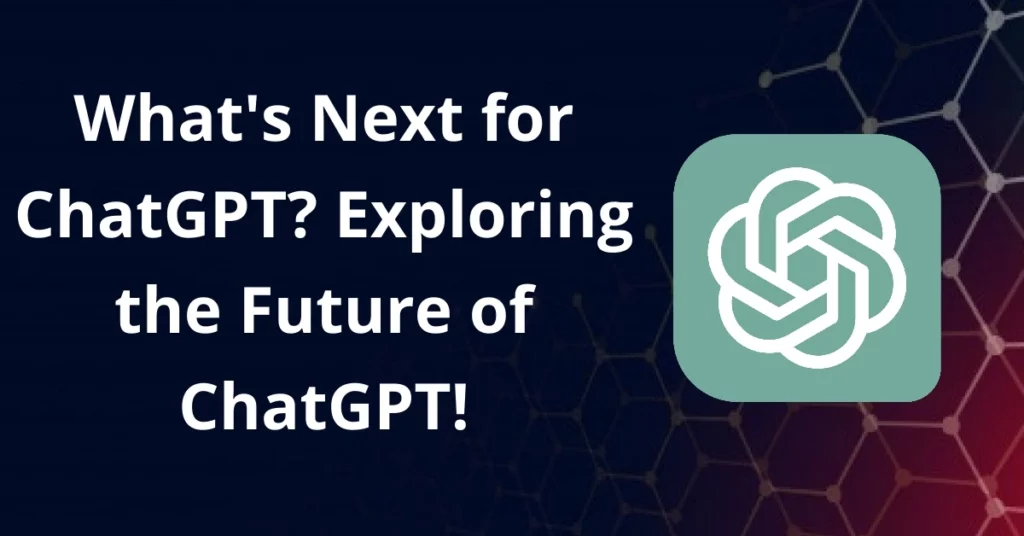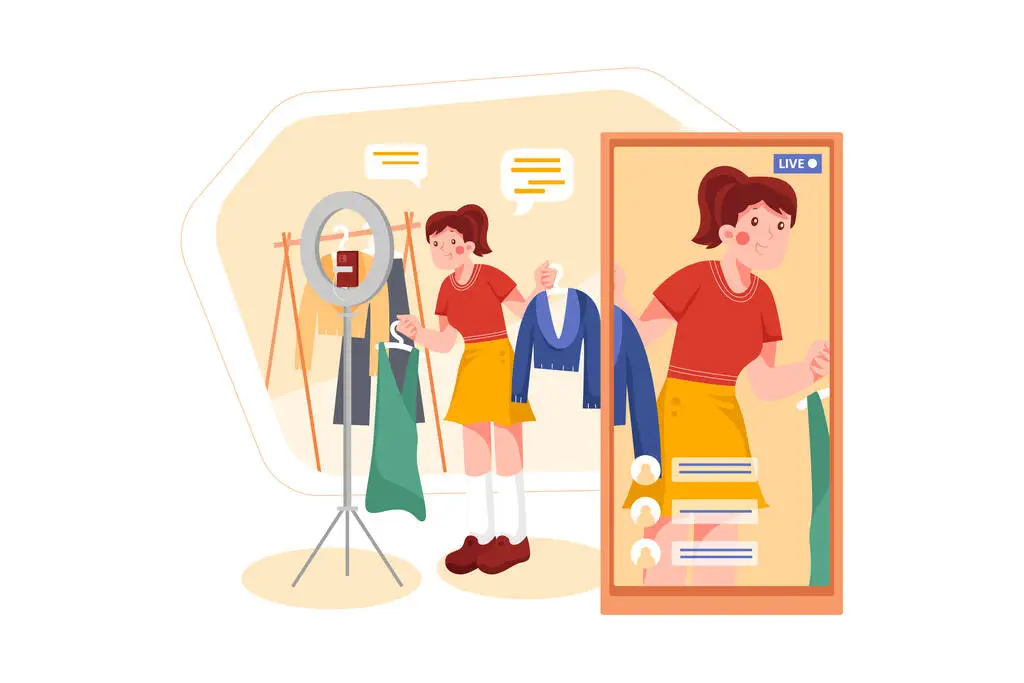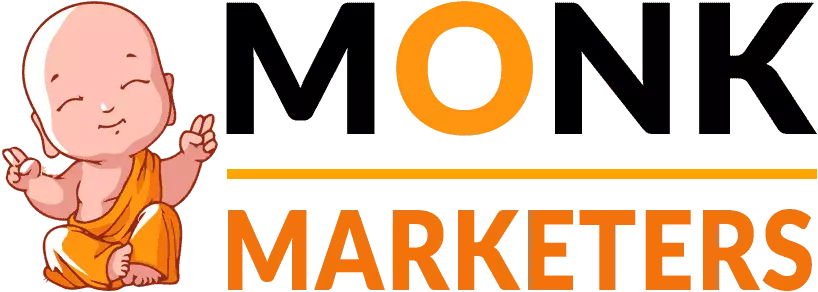ChatGPT is an AI writing software that has revolutionized the content creation industry.
It uses cutting-edge technology to generate high-quality content without human intervention.
As ChatGPT continues to gain popularity, people are curious about its future and how it will impact content creation.
In this blog post, we’ll explore the future of ChatGPT and its impact on content creation.
We’ll also discuss the technology behind ChatGPT, including OpenAI’s role in its development and Google’s interest in it.
Additionally, we’ll examine some of the security concerns associated with ChatGPT and how it can be used in industries like healthcare and social media.
Further, we’ll dive deep into GPT-4 and its potential impact on AI writing software.
Lastly, we’ll look at the cost and availability of ChatGPT and whether it can replace human creativity.
Read on to discover what’s next for ChatGPT!

What is ChatGPT?
ChatGPT is an AI chatbot that offers conversational support, recommendations, and casual chats.
Using natural language processing, it comprehends user requests and provides accurate responses.
It may include more advanced features and integrations with other platforms in the future.
What is the future of ChatGPT?
ChatGPT is continuously making efforts to enhance the user experience by integrating AI technology into its platform and expanding its capabilities.
The goal is to provide better chatbot responses that satisfy users’ queries more efficiently.
ChatGPT plans to explore new industries beyond mental health, which could lead to exciting partnerships and features.
Collaborating with other companies will be a crucial aspect of this expansion strategy as it aims to enhance the platform’s functionality and offer users an even more personalized experience.
The integration of AI technology will help ChatGPT create an efficient and effective response system capable of catering to a wide range of user needs.
With these advancements, ChatGPT aims to establish itself as a leading player in the chatbot industry.
In addition to improving the response system, AI technology can also help ChatGPT identify trends and patterns in user behavior, which can lead to more targeted content creation.
Moreover, exploring new industries beyond mental health could open up new opportunities for ChatGPT to tap into different markets and offer unique solutions.
This expansion strategy will not only broaden their reach but also increase brand recognition and reputation.
By collaborating with other companies, they can leverage each other’s expertise and resources, leading to mutual benefits.
In conclusion, with AI integration and expansion into new industries, ChatGPT is poised for growth and success in the chatbot industry.
Their commitment to improving user experience through personalized responses and collaborations is key to achieving their goals.
How ChatGPT is impacting content creation?
ChatGPT is transforming content creation by assisting creators in generating ideas and overcoming writer’s block.
This chatbot provides unique prompts and encourages creativity, making content creation more efficient while providing new angles for writers to explore.
It saves time and resources, making it an essential tool for content creation.
ChatGPT vs other AI writing softwares
Compared to other AI writing software such as Jasper AI, ChatGPT stands out due to several key features.
As a chatbot, it provides a new way for content creators to interact with their audience – offering suggestions and ideas based on user input.
This approach can help save time and inspire creativity by suggesting fresh angles and perspectives for writers to explore.
Moreover, ChatGPT is constantly evolving and improving through the integration of artificial intelligence technology – ensuring that its impact on content creation will continue well into the future across various industries including healthcare, customer service, analytics, financial planning etc.
Security concerns with ChatGPT
As an AI-powered chatbot designed to increase creativity and save time for content creators struggling with writer’s block, ChatGPT is revolutionizing the way content is generated across various industries like healthcare and customer service.
While its constantly evolving nature makes it a unique platform for content creation with high-quality results using AI technology, there are security concerns that need to be addressed with caution.
Despite this factor, ChatGPT has proven to be a valuable tool for those seeking new ideas and workflow automation in their professional pursuits.
Using ChatGPT in healthcare industry
Incorporating artificial intelligence (AI) into the healthcare industry with tools like ChatGPT can have a significant impact on content creation by acting as an AI-powered writing assistant.
Using natural language processing (NLP) algorithms and a large language model, content creators can refine their writing style and generate new ideas with ease.
This cutting-edge technology opens up new possibilities for financial planning and analytics while paving the way for new ideas to emerge in real-time workflow automation.
As we look towards the future of AI chatbots like ChatGPT, there are exciting use cases across various industries beyond just healthcare.
ChatGPT as a cutting-edge technology
As content creators seek to engage their audiences in new and innovative ways, artificial intelligence is increasingly playing a pivotal role.
ChatGPT’s cutting-edge AI model offers an exciting opportunity to generate fresh ideas, gain insights into the target audience, and create highly tailored and personalized content.
With the future of work becoming increasingly automated, it seems likely that integrating these types of generative AI tools will become commonplace across various industries.
ChatGPT For Social Media

As a cutting-edge technology, ChatGPT is creating a new way of generating content through AI-powered conversations.
Using this AI, creators can gather insights about their target audience, generate ideas and inspiration for their work, automate the content creation process, and reduce time and effort required to create high-quality content for social media platforms such as Twitter, Facebook, TikTok or LinkedIn. ChatGPT’s language model is continuously evolving with large language models like GPT-3 or GPT-4.
With various industries exploring more use cases and applications of generative AI like ChatGPT in finance planning or customer service workflows, the future of ChatGPT looks bright despite some caution regarding misinformation that may arise from its use.
The European Union has already started looking into regulating these algorithms a few years ago.
ChatGPT For Chatbot
ChatGPT’s potential as a chatbot is immense.
With its advanced language model, it can provide meaningful and context-aware responses, making interactions with users more natural and engaging.
As businesses look to enhance their customer service and support systems, integrating ChatGPT as a chatbot can lead to improved user experiences and increased efficiency.
However, it is important to ensure proper monitoring and training of the chatbot to avoid potential biases or misinformation that may arise from AI-generated responses.
GPT-4 and its impact
The latest version of ChatGPT, GPT-4, is changing the game in the world of content creation with its AI-generated ideas and prompts.
Using natural language processing, it provides personalized and engaging content that can help creators overcome writer’s block and save time while focusing on producing high-quality content.
The impact of this cutting-edge technology is evident across industries such as healthcare, customer service, and financial planning.
However, caution must be exercised while using it to generate misinformation.
Additionally, there are discussions around its impact on the job market and the future of work.
It’s exciting to see what new ideas and real-time solutions will emerge from this generative AI technology.
How creators can benefit from ChatGPT
With the future of chatgpt looking bright, more and more industries are turning to this cutting-edge technology to automate their workflows.
Creators in various industries can benefit from ChatGPT by generating new ideas and overcoming writer’s block.
With AI-generated prompts and ideas that save time and effort on research, ChatGPT helps creators bring fresh perspectives to their work.
The AI also allows for a more personalized approach with natural language processing that translates to more engaging content.
From finance planning to customer service analytics or even social media trends on TikTok- there is no limit to what you can achieve with ChatGPT.
Understanding the technology behind ChatGPT
ChatGPT is an advanced AI chatbot built by OpenAI that utilizes natural language processing to produce answers that seem almost too humanlike.
The program uses a vast database of text data and learned knowledge to provide accurate responses or finish sentences.
This cutting-edge technology has various applications in numerous industries such as healthcare, customer service, and content creation.
Though there are limitations to AI models like ChatGPT, their potential danger can be mitigated with proper care and use.
As the world continues to embrace new technologies like ChatGPT and other large language models like Dall-E, the future of work will undoubtedly see significant changes in automation and workflow processes.
OpenAI’s role in ChatGPT
OpenAI’s role in ChatGPT development is crucial.
The Generative Pre-trained Transformer or GPT technology behind ChatGPT was developed by OpenAI.
The ongoing training and algorithm updates of ChatGPT make it a constantly evolving cutting-edge technology that has the potential to expand into voice and video interactions.
Its wide range of use cases in various industries gives it an edge over other chatbots. However, as with any AI model, caution should be exercised while using them.
Google’s interest in ChatGPT
Google’s interest in OpenAI’s ChatGPT reveals its commitment to conversational AI technology.
Its applications in customer service, mental health support, and language translation demonstrate their versatility.
As the AI improves, it will become even more proficient at comprehending complex queries and emotions.
This innovative tech marks a new era of communication that can solve issues with ease.
Additionally, as companies invest heavily in automating workflows for financial planning or analytics purposes, there is an increasing demand for AI models like Chatbot GPT-3 to answer questions in real-time.
The future of work seems bright with new technology paving the way for new ideas.
Can ChatGPT replace human creativity?
While ChatGPT can simulate human conversation, it cannot fully replace human creativity. Its potential lies in assisting humans in generating creative ideas and improving its capabilities with more data and advanced algorithms.
It has diverse applications in industries such as customer service, education, and healthcare.
Cost and availability of ChatGPT
The future of AI is bright, with endless possibilities for improving communication and solving problems.
One such example of cutting-edge technology is ChatGPT, an AI chatbot that uses natural language processing to generate human-like responses.
While the cost and availability of ChatGPT are a significant consideration when compared to other similar chatbot services, potential market demand for the technology and partnerships with other companies could expand its accessibility.
Even as technological advancements continue in the field, there may be challenges like changes in regulations or competition from other chatbot services that affect its cost and availability.
Nonetheless, the future of ChatGPT looks promising, with various industries already utilizing it for customer service, healthcare, education, finance planning etc., paving out new use cases while keeping in mind the caution about misinformation.
Sponsored deals and partnerships with ChatGPT
Incorporating sponsored deals and partnerships plays a vital role in the growth of ChatGPT.
By collaborating with various industries such as healthcare or customer service sectors only helps in expanding the reach while introducing additional features like voice recognition and natural language processing.
Besides this, cost-effective pricing plans have been introduced for small businesses and individuals to avail themselves of these services.
The future of ChatGPT focuses on enhancing its AI capabilities with large language models like GPT-4 by OpenAI along with improving user experience.
The potential use cases that ChatGPT offers across different industries only emphasizes the future of AI in automation workflow.
Frequently Asked Questions
What is the success rate of ChatGPT?
The success rate of ChatGPT cannot be precisely determined as it is an AI language model. However, its extensive training on vast amounts of data makes it highly proficient in natural language processing tasks. The success of ChatGPT largely depends on the quality and relevance of user input. As AI technology continues to advance, greater success can be expected from ChatGPT in the future.
What will ChatGPT do to jobs?
ChatGPT is an AI language model meant to assist with tasks, not replace jobs. It can streamline certain job functions and enhance efficiency. Although technology may render some jobs obsolete, new opportunities will arise. ChatGPT can be a valuable tool for individuals to upskill or reskill in response to changing job market demands.
What do AI experts think of ChatGPT?
AI experts have lauded ChatGPT for its remarkable natural language processing abilities and potential to transform the chatbot industry. Nonetheless, some experts express ethical concerns. Despite this, ChatGPT is seen as a positive advancement in artificial intelligence by those in the field.
Conclusion
ChatGPT is an AI writing software that has been taking the content creation world by storm. It has limitless potential, and its future looks brighter than ever.
With the advancements in technology, ChatGPT’s capabilities are expected to expand even further, with GPT-4 promising to be a game-changer.
However, there are also concerns about security and whether ChatGPT can replace human creativity entirely.
As creators, we must understand the technology behind ChatGPT and how it can benefit us.
The cost and availability of ChatGPT are also important considerations for those interested in using this tool.
We welcome your thoughts on this topic in the comments section below.
